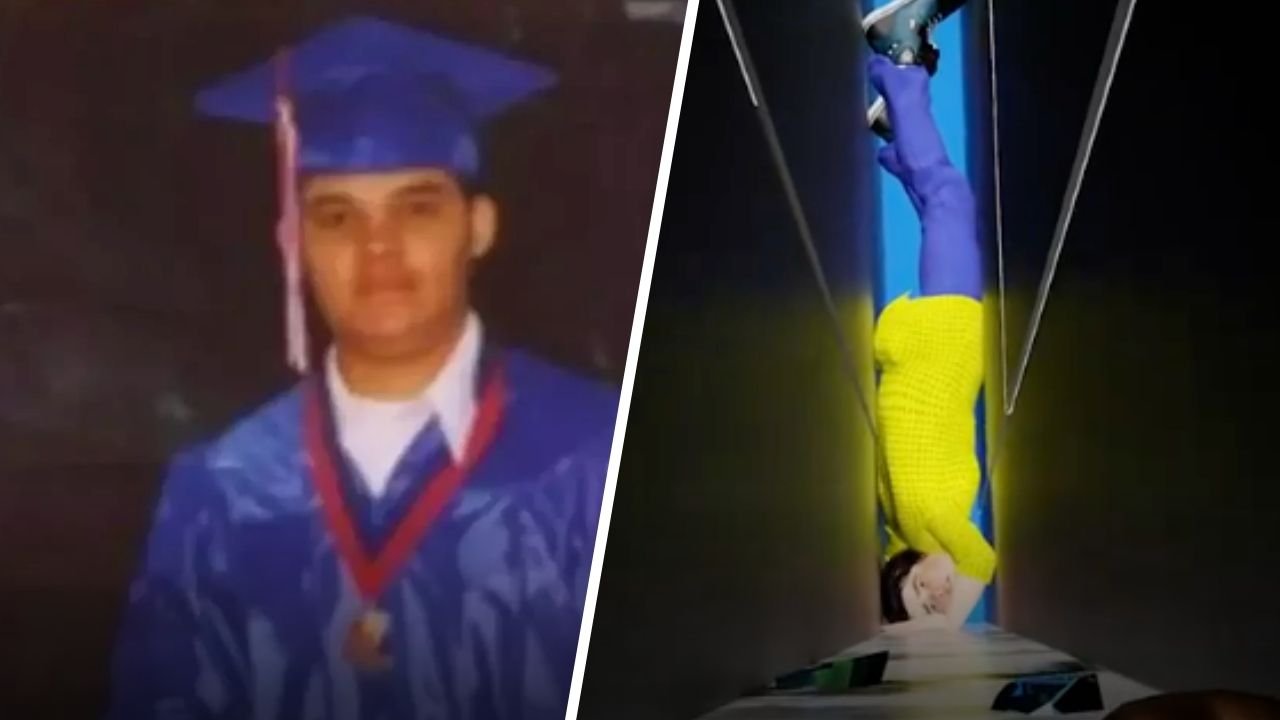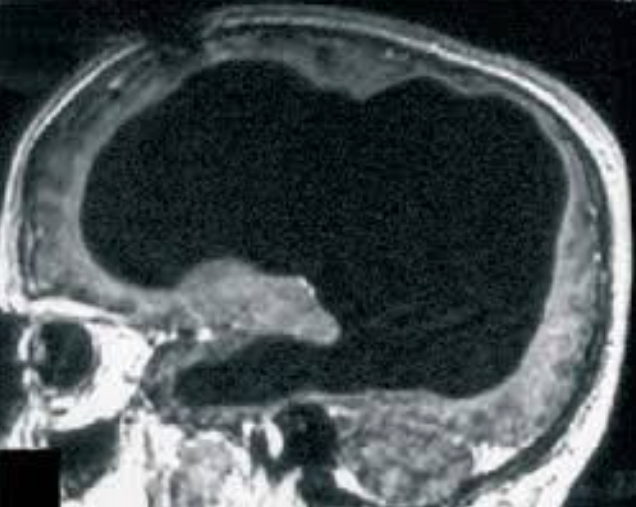Illinois Man Charged After Accidentally Shooting Himself in Sleep During Nightmare

It was a quiet evening in the upscale suburb of Lake Barrington, Illinois, about 40 miles northwest of Chicago, when a frantic 911 call shattered the peace around 9:50 p.m. on April 10, 2023.
Deputies from the Lake County Sheriff’s Office rushed to a home in the 100 block of Shoreline Road, expecting perhaps a home invasion or violent confrontation.
What they encountered instead was a scene straight out of a thriller: a 62-year-old man, later identified as Mark Dicara, bleeding profusely from a gunshot wound to his leg, alone in his bedroom with no signs of forced entry or struggle.
As first responders applied a life-saving tourniquet to stem the heavy blood loss, Dicara began to explain the unimaginable.
He had been deep in slumber, plagued by a vivid nightmare where an intruder was breaking into his residence.
In the throes of this sleep-induced terror, he reached for his bedside .357 Magnum revolver—a powerful handgun known for its stopping power in self-defense scenarios—and fired at what he perceived as the threat.
The bullet tore through his own leg, lodging in his bedding without penetrating the shared wall to his neighbors’ unit, averting potential tragedy for others.

But was this truly an accident, or something more reckless? Investigators quickly pieced together the puzzle.
There was no evidence of any actual burglary attempt; the entire episode unfolded within Dicara’s mind, a rare manifestation of sleep behavior disorder where individuals act out their dreams physically.
Dicara, who had no prior history of such episodes publicly documented, was rushed to a nearby hospital for treatment, where he underwent procedures to repair the damage from the self-inflicted gunshot wound.
The revolver, found on the bed with one spent cartridge, confirmed his account, but it also opened a Pandora’s box of legal complications.
As the investigation deepened, deputies uncovered a critical detail: Dicara’s Firearm Owners Identification (FOID) card, a mandatory requirement under Illinois law for anyone possessing firearms or ammunition, had been revoked.
This revocation, though the exact reasons remain undisclosed in official records, typically stems from factors like prior convictions, protective orders, or disqualifying mental health evaluations—common triggers in a state with some of the nation’s strictest gun control measures.
Possessing a gun without a valid FOID is no minor infraction; it’s a felony that can carry prison time and hefty fines, underscoring the state’s emphasis on responsible ownership amid rising concerns over accidental shootings and gun violence.
The Lake County State’s Attorney’s Office reviewed the case meticulously.
On June 9, 2023, they approved charges against Dicara: one count of possession of a firearm without a valid FOID card, classified as a Class 3 felony, and one count of reckless discharge of a firearm, a Class 4 felony.
These accusations transformed what could have been dismissed as a freak mishap into a high-stakes legal ordeal.
Dicara was arrested three days later, on June 12, and released after posting a $150,000 bond, with his initial court appearance set for June 29 in a Waukegan courtroom.
What defenses might he mount? Could sleep experts testify to the involuntary nature of his actions, potentially mitigating the reckless discharge claim?
This incident isn’t just an isolated oddity; it taps into broader discussions on gun safety and the perils of keeping loaded weapons accessible during vulnerable states like sleep.
In the United States, accidental firearm discharges remain a persistent issue, with data from the National Safety Council indicating that preventable gun injuries account for about 1% of all firearm-related deaths annually, translating to hundreds of lives lost each year.
In 2023 alone, unintentional shootings contributed to numerous emergencies, often involving improper storage or handling, fueling calls from advocacy groups like Everytown for Gun Safety for enhanced protocols such as secure lockboxes and unloaded chambers.

Experts in sleep medicine point to parasomnias—disorders where people engage in complex behaviors while asleep—as a hidden risk factor in such cases.
Dr. Michael Breus, a renowned sleep specialist, has noted in various forums that nightmares can trigger fight-or-flight responses, especially in individuals with underlying stress or PTSD, leading to unintended actions if dangerous objects are within reach.
But how often do these dream states intersect with firearms?
Lake County Deputy Chief Christopher Covelli described this as the first such case in his department’s memory, yet anecdotal reports from across the country suggest it’s not entirely unprecedented, with similar accidental shootings linked to sleepwalking or vivid dreams surfacing in medical journals.
Illinois’ FOID system, enacted in 1968, requires applicants to undergo background checks and renewals every 10 years, aiming to prevent firearms from falling into unfit hands.
Revocations, which affect thousands annually, often follow DUI convictions or domestic disputes, as seen in comparable cases where owners faced charges for non-compliance.
Dicara’s situation amplifies debates over these laws: Do they protect public safety, or do they ensnare well-intentioned citizens in bureaucratic traps?
Gun rights advocates argue that the revocation process can be overly punitive, while proponents of stricter controls highlight how it prevented potential escalation here.
| Key Fact | Detail |
|---|---|
| Date of Incident | April 10, 2023, approximately 9:50 p.m. |
| Location | 100 block of Shoreline Road, Lake Barrington, Illinois |
| Involved Individual | Mark Dicara, age 62 |
| Weapon Used | .357 Magnum Revolver |
| Nature of Injury | Gunshot wound to leg, significant blood loss treated with tourniquet |
| Charges Filed | Possession of Firearm without Valid FOID Card (Class 3 Felony); Reckless Discharge of Firearm (Class 4 Felony) |
| Bond Amount | $150,000 |
| Initial Court Date | June 29, 2023, in Waukegan |
As Dicara’s case progressed through the courts, questions lingered about the long-term fallout.
Would a conviction lead to imprisonment, or could a plea deal emphasize rehabilitation over punishment?
The bullet that pierced his leg didn’t just cause physical pain—it exposed vulnerabilities in personal security habits, prompting homeowners nationwide to reconsider bedside firearms amid rising home invasion fears.
Statistics from the Centers for Disease Control and Prevention reveal that unintentional firearm injuries among adults spiked in recent years, with over 400 accidental gun deaths reported in 2023 alone, many preventable through education on safe storage.
In Lake Barrington, a community of about 5,000 known for its serene lakeside living, residents whispered about the what-ifs: What if the bullet had struck a neighbor?
What hidden stressors led to such a nightmare?
Dicara, a semi-retired individual with no prior media spotlight, now faces scrutiny that could reshape his life, from potential fines exceeding $25,000 to probation terms barring future gun ownership.
Legal analysts speculate that his defense might invoke medical evidence of sleep disorders, challenging the intent behind the reckless discharge charge and possibly setting precedents for similar nightmare shooting incidents.
Yet, as the courtroom drama unfolded, one can’t help but wonder: In a world where dreams bleed into reality, what other subconscious triggers lurk in the shadows, waiting to turn a peaceful night into a waking horror?













